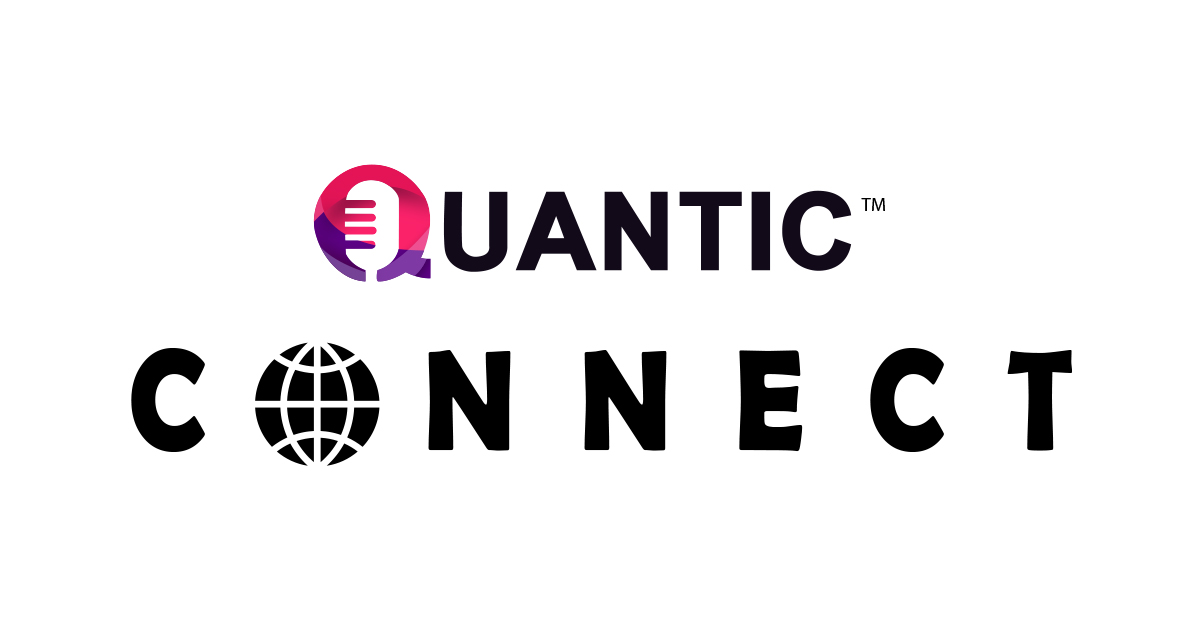Mumbai, 8th August : Cryptocurrency has gained significant attention and popularity in recent years, but it also faces several challenges. Governments around the world are still grappling with how to regulate and classify cryptocurrencies, which creates uncertainty for investors and businesses.
While cryptocurrencies face challenges such as regulatory uncertainty, security concerns, and scalability issues, there are promising trends shaping their future which are contributing to the potential growth and evolution of cryptocurrencies. However, it is important to approach cryptocurrency investment with caution and stay informed about the rapidly changing landscape.
Guiding this engaging conversation is Mr. Marquis Fernandes, who spearheads the India Business at Quantic India in a discussion with Mr. Alankar Saxena who is the CTO & Co-Founder of Mudrex. Together, they explore the intriguing world of Mudrex, shedding light on its methodologies to foster innovation. This insightful discussion promises to unveil valuable insights for the cryptocurrency industry.
Q. Scaling with Security: How are you extending the infrastructure with future technologies while maintaining security as a top priority to preserve user privacy and data?
At Mudrex, we are committed to scaling our infrastructure with future technologies while prioritizing security to protect user privacy and data. Our focus is on enhancing the user experience, minimizing errors, and offering a seamless investment process. As a financial service provider, security is paramount to us, and we employ AES-256 encryption to safeguard sensitive information and maintain data privacy. Additionally, all data flow within the platform is encrypted, and we enforce Multi-Factor Authentication (MFA) for added user account security. By implementing activity-based transaction limits and conducting regular third-party security audits, we ensure the utmost protection for our users’ financial transactions and personal information. Moreover, our compliance with regulatory standards in different jurisdictions, including India and the EU, reinforces our commitment to maintaining a secure and trustworthy platform.
Q. How can CTOs develop the correct architecture for secure and simple user transactions in the face of rising cyber risks?
Developing a secure and user-friendly architecture for transactions in the face of increasing cyber risks involves several key steps. First perform a thorough risk assessment to identify potential threats and vulnerabilities. Implement a security-first approach, incorporating encryption, multi-factor authentication, and firewalls. Stay compliant with relevant regulations and regularly monitor for security breaches. Educate users about cybersecurity and conduct regular training for employees. Assess the security of third-party services if used. Ensure scalability and performance while maintaining a strong focus on security. Collaborate with cybersecurity experts to stay updated on emerging threats and adopt the latest technologies and practices. By following these measures, CTOs can build a robust and secure transaction system that protects both the organization and its customers.
Q. What should be some key considerations when selecting a crypto exchange?
When selecting a cryptocurrency exchange, several crucial factors should be considered. First and foremost is the exchange’s security, ensuring it employs robust measures to safeguard users’ funds. Compliance with regulations and a user-friendly interface are equally important, as is the range of supported cryptocurrencies and liquidity for smooth trading. Transparent fee structures, reliable customer support, and a positive reputation are also vital. Additionally, geographical restrictions, the availability of mobile apps, and advanced trading tools may influence the choice. Careful research and comparison are key to finding an exchange that aligns with individual needs, risk tolerance, and trading objectives.
Q. How are you addressing the regulatory and legal issues around crypto adoption in the financial industry?
Being a cryptocurrency investment platform, ensuring compliance with existing financial regulations is our top priority. We maintain close collaboration with regulatory bodies to understand their requirements and ensure that our operations align with their standards. Our belief in advocating for clear and balanced regulations drives us to promote innovation while safeguarding the interests of consumers and investors.
To prioritize consumer protection, we have implemented robust anti-money laundering (AML) and know-your-customer (KYC) measures, offering secure custody solutions and educating users about the potential risks associated with cryptocurrencies.
Engaging with regulators is vital to bridge the gap between the crypto industry and regulatory authorities. By sharing insights and data, we actively contribute to informed decision-making and collaborate on compliance-related matters.
Legal reviews and audits are an integral part of our approach, ensuring that all our crypto projects comply with relevant laws and regulations, maintaining a strong legal foundation.
In the global landscape of cryptocurrencies, we recognize the significance of harmonization and coordination of regulations. We actively participate in efforts to foster better cooperation across jurisdictions, contributing to the creation of a consistent regulatory environment for the industry.
At Mudrex, we aim to establish a sustainable and compliant crypto ecosystem that encourages innovation, protects users, and facilitates the wider adoption of cryptocurrencies in the financial industry.
Q. What are the potential benefits of using blockchain in the fintech industry?
Blockchain’s potential benefits in the fintech industry are transformative and multifaceted. Its decentralized and immutable nature enhances security and transparency, reducing the risk of fraud and enabling real-time settlement. By eliminating intermediaries, blockchain streamlines processes, leading to faster and cost-efficient transactions, especially for cross-border payments. Financial inclusion is promoted as blockchain provides access to unbanked populations. Smart contracts automate agreements, reducing manual intervention. Blockchain improves identity management, curbing identity theft and fraud. Tokenization of assets allows fractional ownership and trading. Its decentralized architecture enhances resilience to cyberattacks and system failures. Blockchain simplifies compliance efforts through transparency and traceability. Overall, leveraging these benefits fosters innovation, improves customer experiences, and revolutionizes financial services in the fintech industry.
To know more about us / publish your article here reach us at
www.quanticindia.com
marquis@quanticindia.com



